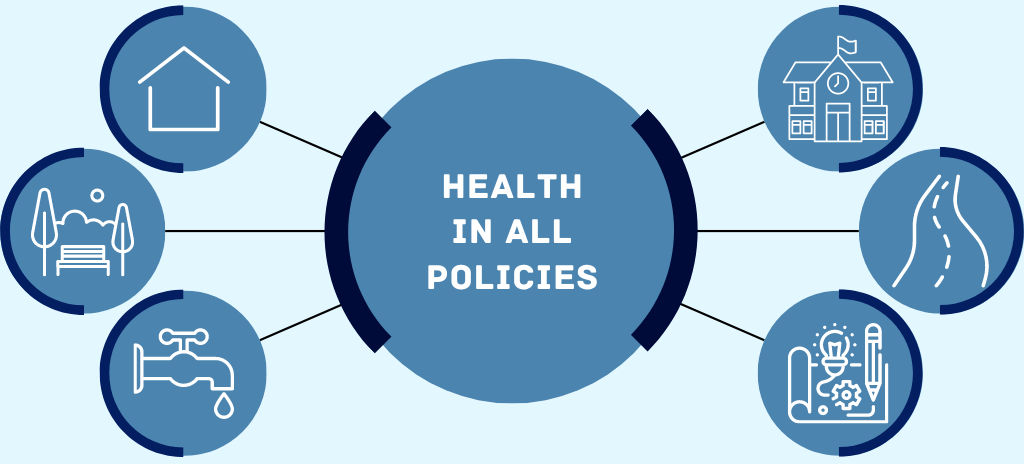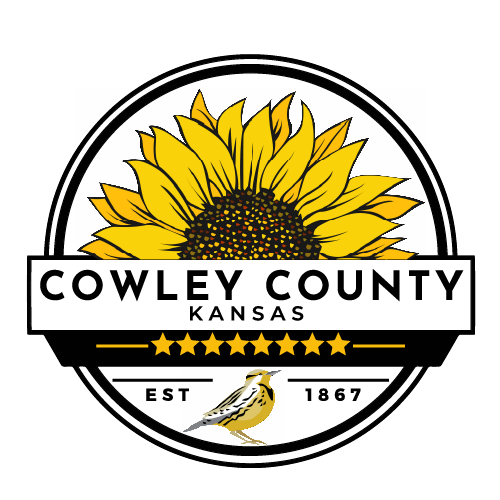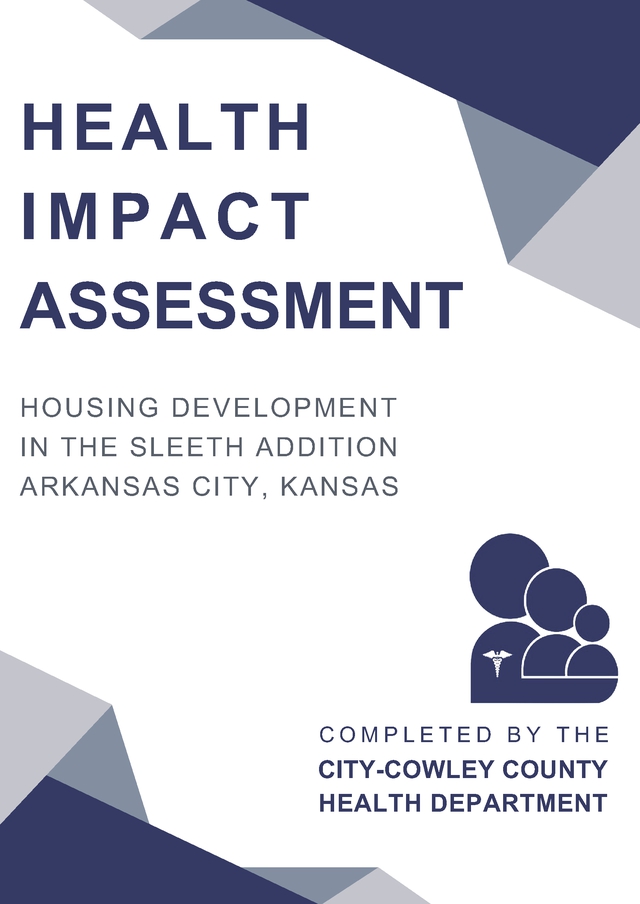Health In All Policies

In the 1920’s, the world began adding lead to gasoline. Leaded gasoline improved engine efficiency and performance, resulting in a smoother ride. For nearly fifty years, leaded gasoline was used without worry or care for the consequences to human health. However, in 1969, studies began to reveal the toxic impact of leaded fuel emissions on human health, particularly on the health of children. In 1986, Japan became the first country to ban the addition of lead in gasoline, with the United States following suit ten years later. The decision to add lead to gasoline was made without consideration of the negative human health impacts that continue to this day.
Think about the health of those around you, including your family and community. You may know people in good health, while others may struggle with poor health. Have you ever thought about ways to help improve the health of your community? Numerous challenges can affect an individual's health, such as genetics, pre-existing conditions, access to health insurance, transportation, and language barriers. These factors can feel overwhelming and lead to a sense of hopelessness. However, there are solutions available. Successful policy development that values health can lead to better well-being for communities everywhere. This is known as the Health in All Policies (HiAP) approach, which prioritizes health impacts in decision-making processes.
The City-Cowley County Health Department promotes a "Health in All Policies" (HiAP) approach in collaboration with the Pathways to a Healthy Kansas Initiative, which is funded by Blue Cross and Blue Shield of Kansas (BCBSKS).
What is "Health In All Policies"?
The HiAP approach aims to prioritize health impacts during decision-making. This can save money in the long run by reducing unintentional health impacts and expenditures. To integrate the HiAP approach, a neutral examination of probable health impacts is required. Many research tools are available to streamline this process, with the Health Impact Assessment (HIA) tool being the most widely accepted.Mission Statement
Improving community health one policy at a time using public health considerations during the decision-making process to prevent harmful health impacts, promote healthy lifestyles, and protect the environment.
What is a Health Impact Assessment (HIA)?
The HIA tool requires a detailed review and analysis of the proposed policy or project. It considers possible health effects, whether good, neutral, or poor, based on known circumstances from similar projects or policies. Stakeholders are consulted, and subject matter experts provide input. This process may take weeks or months.
The City-Cowley County Health Department staffs a diverse Health Impact Analysis (HIA) Team to champion the HiAP approach locally. The HIA team comprises members from various backgrounds who work together to support research efforts. The HIA team collaborates with stakeholders, especially decision-makers, to provide information about the effects of a proposed policy or project on health. The HIA team performs analyses specific to the proposed policy or project and then compiles a report of its findings.
In cases where time and/or budget constraints prevent using an HIA, other research tools such as Policy Briefs and Project Notes may be used. These tools provide a focused, non-biased overview of a topic rooted in research and evidence.
Requesting an HIA
Request An HIA
If your organization or community is interested in learning more about the HiAP process, contact the Health Department at hdinformation@cowleycountyks.gov.


